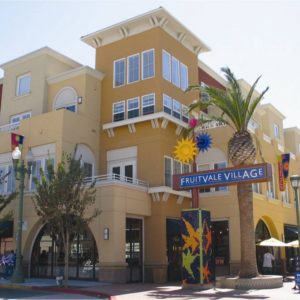
Block Club Chicago Article by Mina Bloom and Mauricio Peña
When it opened in 2004, Fruitvale Village was considered one of the first transit-oriented developments in the country. It was born out of a decade-long community-led fight against a proposed parking garage on the transit agency-owned land.
Essentially, BART — the CTA of Oakland — wanted to build a parking garage there, but The Unity Council, a Fruitvale-based community development nonprofit, had a different vision for the property.
“The Unity Council and several other organization pushed against [the parking garage],” Chris Iglesias, CEO of Unity Council, told Block Club Chicago. “That was the last thing we wanted… just this big barrier between the Fruitvale BART station and the community,” he said.
Instead, they proposed a multiple phase development that would make way for affordable housing, retail, and spaces for social services that catered to the majority-Latino Fruitvale community. With robust community involvement from the outset, the nonprofit’s plan was eventually given the green light.
A decade later, Fruitvale Village was home to a public library, an early childhood education center, a charter school, a senior center, a clinic, Centro Legal de la Raza and dozens of retailers with 47 apartments on the top floors — 10 of them reserved as affordable housing units.
Can Chicago’s Gentrifying Neighborhoods Grow Without Leaving Longtime Residents Behind? Oakland’s Fruitvale Village Offers Hope
OAKLAND, Calif. – In 2014, Jorge Cervantes got married in the Fruitvale Village senior center – across the courtyard from his apartment. Cervantes